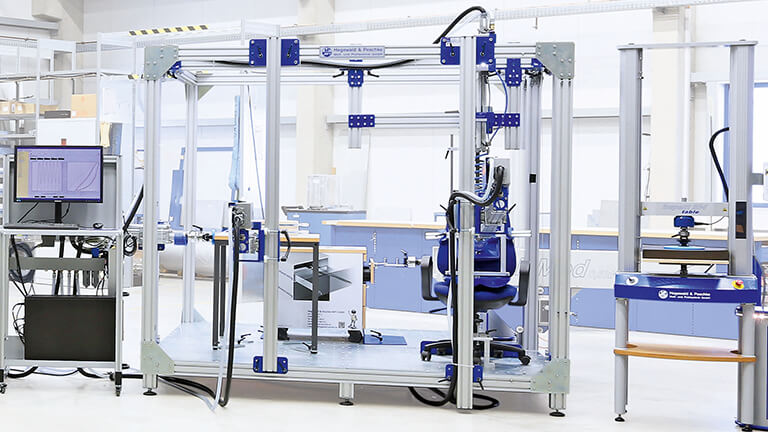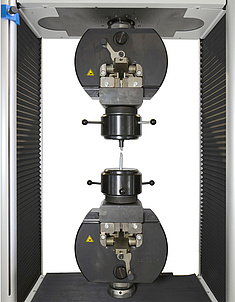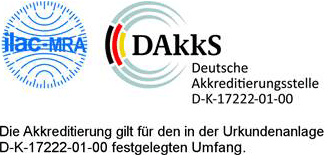Search Results
Mechanical specimen grips
Gripping, clamping, holding - from rough to fragile
Hegewald & Peschke offers a wide range of mechanical grips for tensile tests. This includes both from-fit and force-fit grips, each of which can be used for a wide range of materials, specimen shapes and temperature ranges.
Force-fit grips:
Vice Grips
- External tensioning
- Field of application: Up to 20 kN, polymers (thermoplastic, duroplastic), foils, food,
Advantages:
- Light
- Symmetrical and asymmetrical clamping
- Adjustable clamping force
Disadvantages:
- Only for small forces
- Difficult to reach reproducable clamping forces
- Clamping force decreases during testing
Princer Grips
- Self-tensioning
- Field of application: Up to 20 kN, elastomers, plastics, textiles
Advantages:
- Light
- Clamping force increases during testing
Disadvantages:
- Only symmetrical clamping possible
- Clamping and pre-clamping force cannot be adjusted
Wedge type Grips
- Self-tensioning
- Field of application: Up to 600 kN, metals
Advantages:
- Up to high forces
- Clamping force increases during testing
Disadvantages:
- Heavy
- Only symmetrical clamping possible
- Clamping and pre-clamping force cannot be adjusted
- Spring back after brittle fracture
Screw type wedge action grips
- External tensioning
- Field of application: Up to 250 kN, metals
Advantages:
- Symmetrical and asymmetrical clamping
- Adjustable clamping force (Reproduceable clamping forces can be reached with a torque wrench)
- Up to high forces
- Frictional fixation after fracture
Disadvantages:
- Heavy
Form-fit grips
Specimen holder for shoulder, screw and thread head testing
- Field of application: Clamping of tensile specimens that cannot be gripped directly with clamping jaws due to their size, geometry or structure
- For example suitable for:
- Testing of thread specimen
- Testing of shoulder specimen
- Testing of screws
- Testing of tubes
- Testing of tapes
Further information:
Wedge type grips:
Screw type wedge action grips:
Screw type wedge action grip 10 kN
Screw type wedge action grips 20 kN and 50 kN
Screw type wedge action grips 100 kN and 250 kN
Clamping jaws for screw type wedge action grips 100 kN and 250 kN
Specimen holder:
Videos:
Metal tensile test according to EN ISO 6892-1 with screw type wedge action grip






















